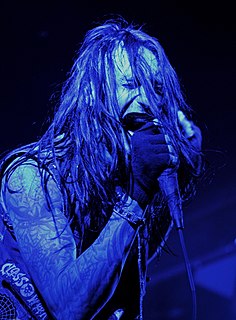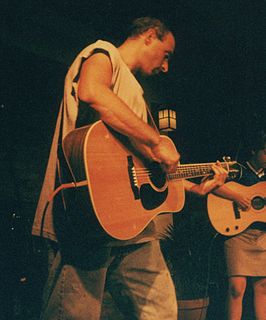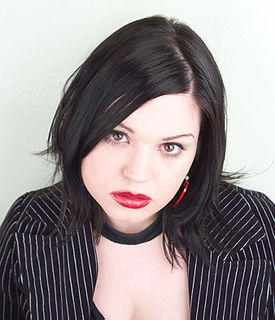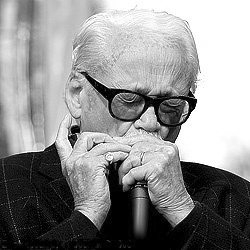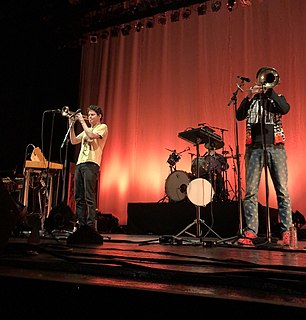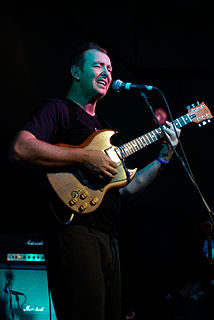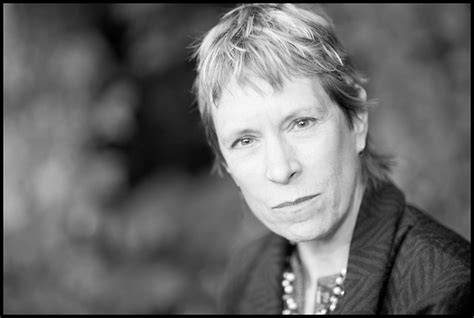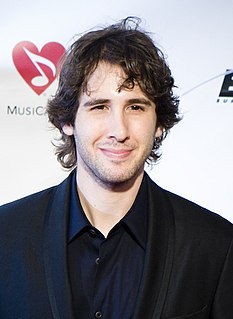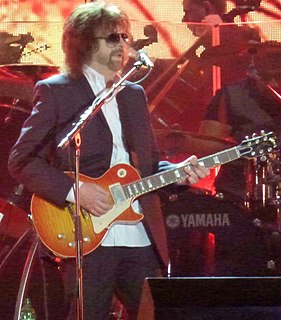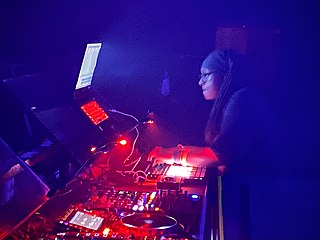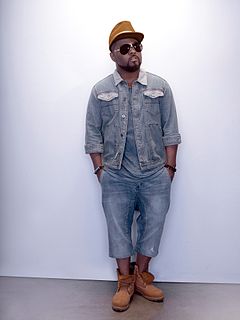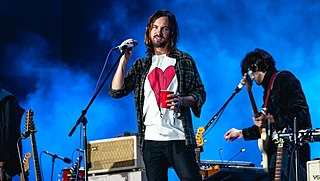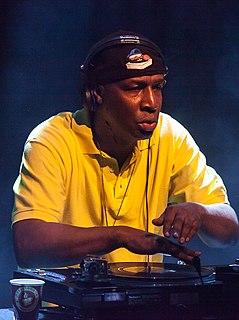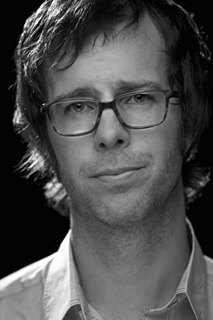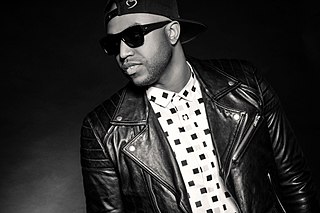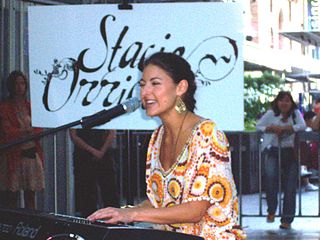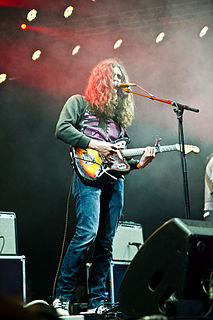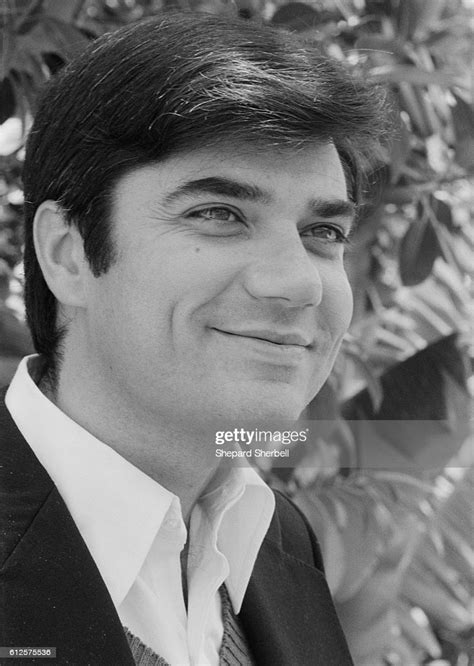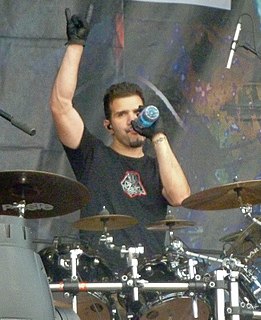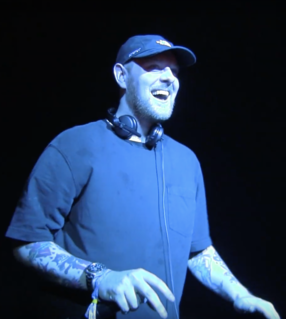Top 586 Musically Quotes & Sayings - Page 10
Explore popular Musically quotes.
Last updated on April 19, 2025.
The lack of quality dance music and the fact that here in the United States, house music is not seen as anything viable by the music industry. I figured that this might be another shot at the industry looking at the possibilities of house music and giving it a little bit more legitimacy than what they give it. It's a host of different things, but it's something that I needed to say musically.
The irony is that I don't think we took a step backwards to make 'Group Therapy'. I think we took a step forward because it's a lot more complicated to make that kind of album. I think that album was far more produced than 'American Apathy', and it had a lot more harmony vocals and lots of intricate parts musically speaking.
Every time I write a song, it's different. I'm all about the rhythm of the words and the melody. Musically, you gotta have a throbbing pulse going. But as far as what it's all about, there's a million ways to go. You have to invent a new code for every song. Then you have to break it. It's like Scrabble or a crossword puzzle on steriods. I could talk about the process for days. But it's never dull and there's no one way in.
The first time I ever saw Lydia Lunch perform it was a religious experience. Not only is she intelligent and beautiful but she actually understands how "my" brain works. This almost rivals my first concert- Cindy Lauper when I was 12. She was so fascinating to me at the time. She made me want to dye my hair pink and start a band. (SO I naturally did)... All Cure records have had a great effect on me musically also.
When I was a little kid wanting to play music, it was because of people like Pete Johnson, Huey Smith, Allen Toussaint, Professor Longhair, James Booker, Art Neville ... there was so many piano players I loved in New Orleans. Then there was guys from out of town that would come cut there a lot. There was so many great bebop piano players, so many great jazz piano players, so many great Latin piano players, so many great blues piano players. Some of those Afro-Cuban bands had some killer piano players. There was so many different things going on musically, and it was all of interest to me.
I think I had the same notion most people have, which is it’s simply a town that percolates around country music. Though country-music history is deep and richly steeped throughout the city, this is a place that’s been expanding musically and culturally…People coming from Europe and Canada-there are all kinds of different cultures and different music being represented here. It continues to blossom.
There are people at the extremes who aren't able to do anything musically, and then others sort of fall in the middle. And the same thing with math, and the same thing with art. You'll find people who are geniuses, or prodigies at the far end of the bell shaped curve, and I think you will find some of the acquired savants in that category who happened to have been endowed with that kind of talent, which explains why not everyone becomes an acquired savant.
My parents had a sidewalk cafe: every Sunday there was an accordion player and apparently I went through the motions, squeezing a shoebox. One of the regulars in 'the cafe said to my father: "I think you should get your son an accordion-that's what he's trying to do, with that shoebox." So they got me a little cardboard diatonic accordion-I still have it. I started to play the National Anthem, and things like that. It seems I was musically gifted-but my parents just never pushed in that direction.
Lyrics are what I tend to tear hair out over and they're where I tend to feel weak musically, if I'm being very honest. It is not something I feel like I know anything about; I would not consider myself a writer. I just want to sing, I just want to sing a melody, I just want to feel a melody, and be part of the song, and everything else is not so important.
Every opera, because every opera is a unique slice of a particular perspective, historical perspective and psychological perspective if not musical style, and so forth, they all present different challenges. Some can be musically very challenging, some can be psychologically more challenging. There is always something that requires a pretty specific amount of energy and attention.
Musically, though, you're a character and you're singing a song. If you're not your own character, you're the character in the song, most of the time. Even blues musicians, a lot of them who were the most realistic, at times, they were singing a song and portraying a character in the song. There's something to be said for getting involved in the emotion of a song, too, with the characters.
Moment to moment, I'm very much just feeling and trying to synthesize what I'm taking in so it can come out musically. I'll continue to do that. I'm also someone who really likes to push themselves into new situations with new people and try to learn from them. I will be very happy to continue doing that, if people let me.
I think when you leave a band in any situation that you are a part of.. I mean, when I was with It Bites I was a quarter of something, and when I was with Robert Plant I was a sixth of some- thing and when you leave you become the whole thing. So just after you spend time realizing what you are, and it just happened that I was doing that in my life as well as musically, it kind of happened at the same time. I was getting to a point in my life where I was beginning to realize who I am, and I like me.
In Advance of All Parting is a tough, unsentimental examination of marital grief. Musically elegant and inventive, understated and passionate, the poems give us a profound glimpse into how the events of a life can form a center of gravity that fixes the self in its force field. Theres a cold, truth-telling clarity about them that makes them as unsettling as they are beautiful. Ansie Baird has created a richly-drawn world in which this elemental drama plays out, and the result is vivid, startling poems in which pain has left its indelible tracks.
She talks with a broken heart - Her voice lutes brokenly like a heart lost, musically too, like in a lost grove, it's almost too much to bear sometimes like some fantastic futuristic Jerry Southern singer in a nightclub who steps up to the mike in the spotlight in Las Vegas but doesn't even have to sing, just talk, to make men sigh and women wonder I guess.
It all comes down to what you truly love doing, and what I love doing is overdubbing and making new sounds out of things that are sometimes quite ordinary on their own, but when you put them together, they make something new--or something that sounds new. Just discovering things like that musically is a pleasure.
My comfort zone musically, I wouldn't necessarily say I have one now. But, when I did have one, I can definitely identify that it was sampling. I had to identify it honestly as sampling because I started to become dependent on using samples in order to make a track rather than being dependent on myself to make the track because I maybe didn't trust myself enough then.
I am an excitable person who only understands life lyrically, musically, in whom feelings are much stronger as reason. I am so thirsty for the marvelous that only the marvelous has power over me. Anything I can not transform into something marvelous, I let go. Reality doesn't impress me. I only believe in intoxication, in ecstasy, and when ordinary life shackles me, I escape, one way or another. No more walls.
Pete Townsend for me was a huge influence. Because essentially they were a three-piece band and the way he structured his chords and took up a lot of space musically in the songs was really important to the way Rush developed. Geddy and Neil both were such active players and lot of the time we were all playing like crazy and it was too much and somebody had to reel it in and me being the faceless guy, I would do that.
Hip hop music and soul music have been the two main motivators for me musically. The music I make is hip hop soul, but I do make r&b music as well. I don't think I make r&b music to the point where I'm accurately categorized. There's more to what I have to offer and offer in the future. People could choose to respect it or not, but I pray that you do. As long as you get it, support it, and pay for it, it doesn't really matter.
With lyrics for me, it's usually musically-based. It's not really poetry- or writer-based. It's rock-based. It doesn't mean that I'm aping rock lyrics, but I'm writing from a music standpoint. I'm thinking more of music heroes, if they're in my mind. Not William Blake or John Ashbury. Sometimes maybe I thought of him a little bit. Or Wallace Stevens. I don't even really fully understand either of them.
Because of Billy Joel, I've been playing piano since I was knee high. The house was always full of music, so of course he's influenced me, but I think I've also developed my own sound. He's also been really good about giving me advice, which I think has helped me really stay true to what I want to do musically.
As long as there is democracy, there will be people wanting to play jazz because nothing else will ever so perfectly capture the democratic process in sound. Jazz means working things out musically with other people. You have to listen to other musicians and play with them even if you don't agree with what they're playing. It teaches you the very opposite of racism and anti-Semitism. It teaches you that the world is big enough to accommodate us all.
My brother Steve, who was a few years older than me, had 'Bad' on tape, and I remember listening to 'Smooth Criminal' and just thinking it was the coolest thing ever. I must have been five or six at the time, and I remember walking around school by myself thinking I was Michael Jackson. I wasn't dancing, exactly - more like walking musically.
Hear the sledges with the bells, Silver bells! What a world of merriment their melody foretells! How they tinkle, tinkle, tinkle, In the icy air of night, While the stars that oversprinkle All the Heavens seem to twinkle With a crystalline delight: Keeping time, time, time, In a sort of Runic rhyme To the tintinnabulation that so musically wells From the bells, bells, bells, bells, Bells, bells, bells-- From the jingling and the tingling of the bells.
We were just amazed we were putting out a record. We were, and are, still learning. But we've never cared much for professionalism as long as the energy was there. Like our live shows: We're out of tune and use a lot of feedback. That's not on purpose or because we don't care, we're just musically and rhythmically retarded and we play so hard that we can't tune our guitars fast enough.
Everything I write is personal, really. Even when I'm sarcastic, it's quite personal. And on this record, from the production to the singing to the performances, I got it really honest. To the modern ear, it seems soft. When you hear it against other things, it seems vulnerable. Lyrically and musically, though, this is more subtle. And, yes, it's asking a lot of someone who's used to being hit over the head with bright neon to listen to this.
It's just a lot of fun to be able to see your ideas come into fruition. And to see people translate the things that come out of my mind vocally. And to be able to produce vocals and give people my point of view musically. And to be able to sit in the crowd and see people sing the song that I wrote, it's an amazing feeling.
From our earliest days in Liverpool, George and I on the one hand and Paul on the other had different musical tastes. Paul preferred 'pop type' music and we preferred what is now called 'underground'. This may have led to arguments, particularly between Paul and George, but the contrast in tastes, I'm sure, did more good than harm, musically speaking, and contributed to our success.
Beyond that, it gets down to the nuts and bolts of discipline - not a tradition or genre, I don't care about that, actually - but discipline in the sense of just working on music and working on thinking about music. It doesn't matter if it's jazz or not. It's about how we listen, how we interact, how we guide our attention when we're listening, and how we can refine what we're doing musically.
Even now, at 82 years old, if I don't learn something every day, you know what I think? It's a day lost. Now, I don't practice every day. I just take the guitar, swear at it. But I should be swearing at myself. But I fool with music. I'm doing something musically all the time. And my ears are wide open for anything I can hear.
Walt had a seat-of-the-pants approach on what he wanted musically. We kind of 'read' the boss and had a very high batting average, but there were occasions when he felt we had just written the wrong piece for the situation he wanted. We invariably listened to what he wanted - he was very descriptive in what he wanted and we could read him. We'd go back to the drawing board and work out what he wanted. He was a great inspiration, but a tough taskmaster.
The next film I have is called Miles Ahead, which is about Miles Davis, during a five-year period in his life during which he's struggling to figure out which direction to go musically and in his life. I play a record executive who's there to try to get Miles to collaborate with one of my clients. I'm excited to see that.
I am very determined when it comes to my music, and I grew up just loving those singers who had that urban sort of feeling. So when it came down to making my record, I wanted to have that as well. ForeFront was really good about letting me go in that direction and then of course adding the more pop sounds. I feel very fortunate that I got to explore some unique and creative angles musically.
There were a few verses that I wrote literally on the spot. But the concept was there. It's about being in your own world musically and waking up in the morning and walking outside and being consumed by everything around you. Just being aware of the good things in art and music and life. It's also about how the world is at a boiling point, in a way.
In a musically imperfect world, there is still perfection in the voice of Barbara Cook. For anyone eulogizing the historic scores of a long-lost era of Broadway greatness, not to worry. Somebody is still singing them with purity and passion. She is Barbara Cook, and she sings them for the angels to applaud.
It doesn't matter if it's jazz or not. It's about how we listen, how we interact, how we guide our attention when we're listening, and how we can refine what we're doing musically. Also how we can create our own music, and what opportunities that can bring us, as creative musicians. And then insisting that musicians put themselves through an intellectually rigorous process, which involves a lot of reading and writing, while insisting that music scholars think about ethics.
Each one of us in Café Tacvba is a composer and we come to the group with songs written out, musically and lyrically. Occasionally, there's a collaboration between us. But each song is almost always written by one of us, and then we all figure out the arrangements. Up until now there hasn't been a moment where the composer explains the song and says, "I want to say this or that." It's always open for interpretation.
We live in a time where everybody has an opinion and everyone's opinion can be featured somewhere, whether it's an online column and everybody has their form because of the internet. I just find it really shitty that someone who never really produced anything, musically speaking, can just say, "I don't really like it." It just sucks because you put so much work into a record and someone disapproves.
I see that happening with hip hop purists now. Where you have an artist like a Kendrick [Lamar] or a Drake, who are really trying different things emotionally, different things musically, and on a mainstream level. And you have underground hip hop fans dissing it, for the simple fact that it's mainstream - not because what they're doing is whack, or what they're doing is not sincere.

